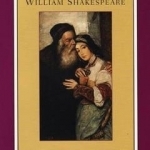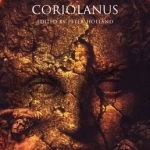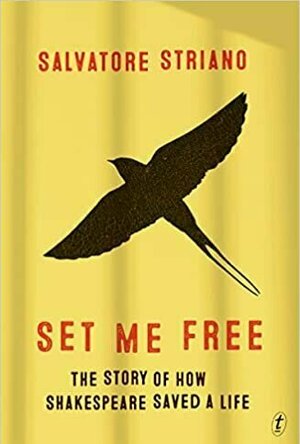Search
David McK (3692 KP) rated Simulating War: Studying conflict through simulation games in Books
Jun 16, 2024
Well, that was something ... different.
This, essentially, is a scholarly thesis on the use of wargaming in an educational setting - like another reader, I found the first part (about the theory) interesting, the second part - containing example games - less so (perhaps because of my lack of real interest in anything beyond WW1 in the air).
Like being forced to study Shakespeare in school, I found this to somewhat suck the fun out of the activity in question.
Still, YMMV, as the saying goes ...
This, essentially, is a scholarly thesis on the use of wargaming in an educational setting - like another reader, I found the first part (about the theory) interesting, the second part - containing example games - less so (perhaps because of my lack of real interest in anything beyond WW1 in the air).
Like being forced to study Shakespeare in school, I found this to somewhat suck the fun out of the activity in question.
Still, YMMV, as the saying goes ...
Becs (244 KP) rated The Merchant of Venice in Books
Jan 2, 2020
I love William Shakespeare and every one of his plays but The Merchant of Venice was a difficult play for me to get into. I felt like the plot was all over the place but I pushed through it to finish the book. It had its good scenes and its bad ones, most books and plays do.
Would I reread The Merchant of Venice again, probably not.
Is it a good play, it's definitely worth the read because of it being a literary classic.
Would I reread The Merchant of Venice again, probably not.
Is it a good play, it's definitely worth the read because of it being a literary classic.
TL
The Little Carthaginian. Pseudolus. The Rope: Volume IV
Titus Maccius Plautus and Wolfgang de Melo
Book
The rollicking comedies of Plautus, who brilliantly adapted Greek plays for Roman audiences c....
Emily Wilson recommended Coriolanus in Books (curated)
Ivana A. | Diary of Difference (1171 KP) rated Set Me Free: How Shakespeare Saved A Life in Books
Oct 5, 2020
This is a story about an Italian prisoner that tells us how the prison system works, all the unfairness in it, and this is also a story that tells us how a person can still turn up good into a bad environment, and I was very happy that I witnessed that change from one chapter into another.
The way it was written was quite good, even though at times it felt a bit blunt and boring. Shakespeare was used in the book a lot, and sometimes he was overused and was in places where he shouldn’t have been. I believe that Shakespeare had influence over Sasa, but not as much as the theatre itself. I believe it was the theatre that made Sasa free, and not Shakespeare in particular. At the end of the day, I actually think that Sasa made himself free… Sometimes you only need a little push and nothing else.
I loved Sasa’s character, and I loved the way he sees life. I love how he sees the positive in all the negative, and besides all, he still wants to be a better person. We are all human, and we all make mistakes, and sometimes people know they made mistakes, regret them and want to become better. That is exactly what Sasa did, in an unfair environment.
I thought the prison was presented a bit unrealistic, as we all know what happens inside, and as much as Sasa wouldn’t hurt anyone if not necessary, almost 90% of the other inmates would – on regular basis. This was a little fact that annoyed me a bit. Other than that, I really enjoyed the book and can’t wait to read another book from Salvatore Striano.
The way it was written was quite good, even though at times it felt a bit blunt and boring. Shakespeare was used in the book a lot, and sometimes he was overused and was in places where he shouldn’t have been. I believe that Shakespeare had influence over Sasa, but not as much as the theatre itself. I believe it was the theatre that made Sasa free, and not Shakespeare in particular. At the end of the day, I actually think that Sasa made himself free… Sometimes you only need a little push and nothing else.
I loved Sasa’s character, and I loved the way he sees life. I love how he sees the positive in all the negative, and besides all, he still wants to be a better person. We are all human, and we all make mistakes, and sometimes people know they made mistakes, regret them and want to become better. That is exactly what Sasa did, in an unfair environment.
I thought the prison was presented a bit unrealistic, as we all know what happens inside, and as much as Sasa wouldn’t hurt anyone if not necessary, almost 90% of the other inmates would – on regular basis. This was a little fact that annoyed me a bit. Other than that, I really enjoyed the book and can’t wait to read another book from Salvatore Striano.
Mark @ Carstairs Considers (2470 KP) rated Meet Your Baker (A Bakeshop Mystery, #1) in Books
Mar 9, 2018
After years at sea, Jules Capshaw has returned to Ashford, Oregon. While she figures out what to do with her life, she is helping her mother with Torte, the family bakeshop. But she’s hardly back in town before she meets Nancy Hudson. Nancy is a new member of the Oregon Shakespeare Festival board, and she is obnoxious, picking fights with everyone she meets. When Jules finds Nancy one more in Torte’s kitchen, there are quite a few suspects. But with the police focuses on Jules’s friends, she starts to investigate herself in order to find out the truth. Can she do it?
I’ve long heard of the Oregon Shakespeare Festival, and I’d love to go sometime. Until that happens, this is a great alternative. The characters are wonderful and already fully formed, although I do feel like part of Jules’s backstory isn’t strong enough for her actions. But that’s probably just me. The plot is good, although it was a little weak at the end. Still, everything is wrapped up in a logical way.
Read my full review at <a href="http://carstairsconsiders.blogspot.com/2017/07/book-review-meet-your-baker-by-ellie.html">Carstairs Considers</a>.
I’ve long heard of the Oregon Shakespeare Festival, and I’d love to go sometime. Until that happens, this is a great alternative. The characters are wonderful and already fully formed, although I do feel like part of Jules’s backstory isn’t strong enough for her actions. But that’s probably just me. The plot is good, although it was a little weak at the end. Still, everything is wrapped up in a logical way.
Read my full review at <a href="http://carstairsconsiders.blogspot.com/2017/07/book-review-meet-your-baker-by-ellie.html">Carstairs Considers</a>.
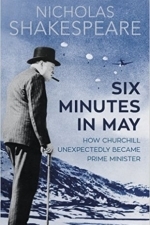
Six Minutes in May: How Churchill Unexpectedly Became Prime Minister
Book
London, early May 1940: Britain is on the brink of war and Neville Chamberlain’s government is...
history politics
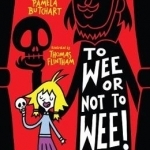
To Wee or Not to Wee
Pamela Butchart and Thomas Flintham
Book
Hamlet could NEVER make his mind up about ANYTHING. And one time he actually went to school in just...
Alison Pink (7 KP) rated The Weird Sisters in Books
Jan 15, 2018
This was the book I gave out for World Book Night 2014. I had not read it prior to giving it, but I had heard it was good.
It wasn't exactly good, but it wasn't awful either. Honestly nothing much happened. It simply tell the story of the Andreas family. They admittedly don't have a "typical" family, but they deal with very typical family issues... cancer, dishonesty, child-parent dynamics, etc. But unlike typical families serious conversations (& even not so serious ones) were dealt with in Shakespeare quotes.
It wasn't exactly good, but it wasn't awful either. Honestly nothing much happened. It simply tell the story of the Andreas family. They admittedly don't have a "typical" family, but they deal with very typical family issues... cancer, dishonesty, child-parent dynamics, etc. But unlike typical families serious conversations (& even not so serious ones) were dealt with in Shakespeare quotes.
Deborah (162 KP) rated Forensic Shakespeare in Books
Dec 21, 2018
Forensic doesn't mean this is the Shakespeare equivalent of Silent Witness - this is a book looking at a group of Shakespeare's plays (and one poem), of which several are often considered 'problem' plays and the use of rhetoric within them. Skinner argues that this is deliberate and relates to a re-emerging interest in the Roman Rhetoricians in the Tudor period. The book is based on a series of lectures given by Skinner, so although as a casual reader I found it interesting, it was also hard work at times, particularly the opening chapters.

